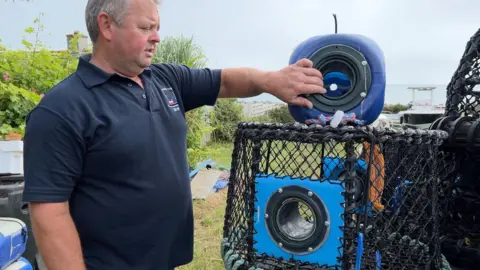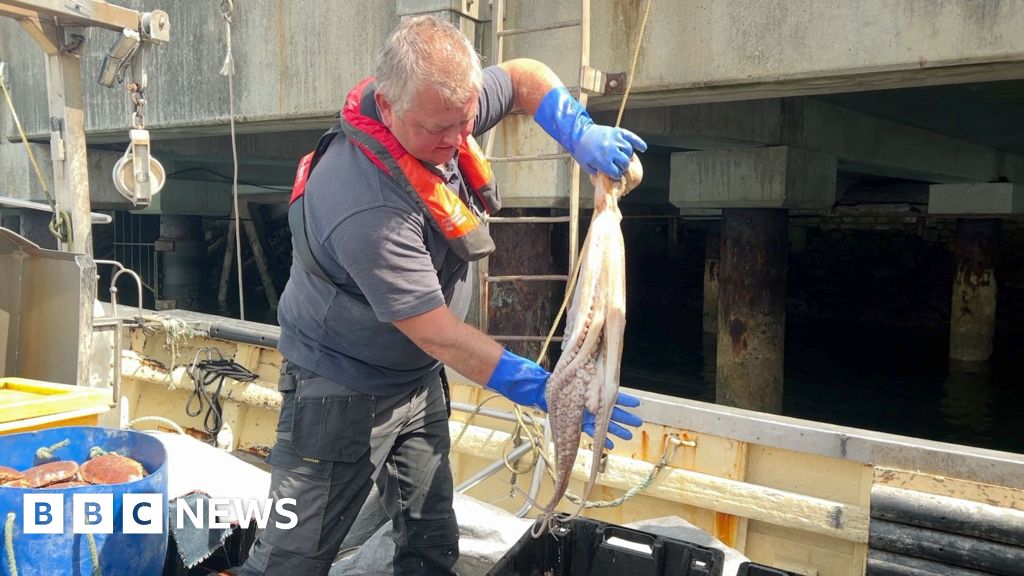BBC News, South West
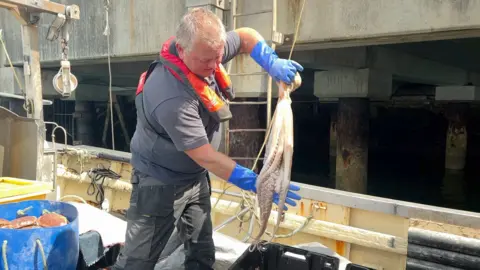 BBC
BBCA dramatic surge in octopus numbers along the South West coast of the UK is being linked to climate change.
The lucrative octopus bloom has led to a dramatic fall in the number of shellfish such as crab, lobsters and scallops which the octopus preys on.
The long-term consequences for the region’s shellfish industry are now concerning those in the fishing trade.
Dr Bryce Stewart, a marine ecologist with the Marine Biological Association in Plymouth, said the octopus bloom was likely to be the result of unusually warm sea temperatures and shifting ocean currents, both driven by global climate change.
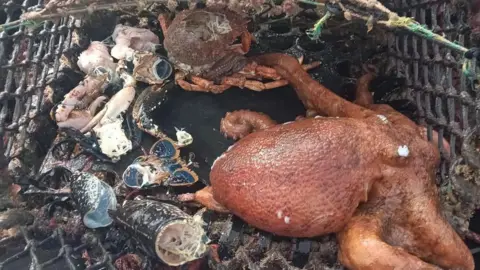 South Devon and Channel Shellfishermen
South Devon and Channel Shellfishermen“This year has seen an explosion in octopus numbers, particularly in Cornwall,” Dr Stewart said.
“Fishermen first started noticing more octopus in 2022 and while numbers dipped slightly last year, 2025 has brought a dramatic increase.”
The species in question, the European or Mediterranean octopus (Octopus vulgaris), is typically associated with warmer waters.
But with sea temperatures in the South West reaching up to 4C above normal this year – an “unbelievably warm” anomaly, according to Dr Stewart – conditions have become increasingly favourable for their reproduction and survival, he said.
“Even a one or two degree rise can have a huge impact on marine life which are ectothermic and rely on the surrounding water to regulate their body temperature,” he said.
“Octopus breed in spring and summer and warmer temperatures during those months help their eggs and young develop more successfully,” Dr Stewart explained.
“But what’s really crucial is the winter temperature.
“Normally, cold winters would kill off many of the young but this past winter was exceptionally warm, allowing more to survive.”
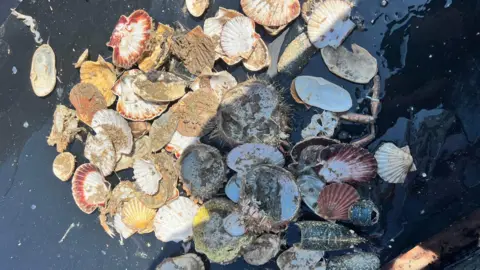 South Devon and Channel Shellfishermen
South Devon and Channel ShellfishermenDr Stewart thinks that octopus have now become a feature of the local sealife.
The warming trend is part of a broader ecological shift, he said.
“We’re seeing more Mediterranean species in UK waters and fewer cold-water species like cod, haddock and pollock,” Dr Stewart said.
“The ecosystem is changing rapidly and that is directly tied to climate change.”
For shell-fishermen like Alan Steer, who works out of Beesands in Devon, the impact has been immediate and severe.
“We’d never seen an octopus five years ago,” he said.
“Now, since February, it’s been an explosion.
“They’re devastating the shellfish we rely on. Crabs and lobsters are being eaten in the pots before we can land them.”
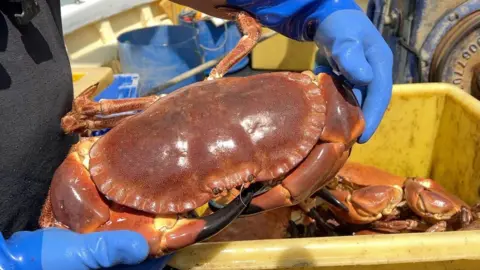
Mr Steer, vice chair of South Devon and Channel Shell-fishermen, estimates his catch has dropped by at least 60% this summer, with some pots coming up filled only with empty scallop shells and fragments of crab and lobster.
“It’s been dramatic,” he said.
“We already had a slight decline over the last two years but this year, with the octopus, it’s just dropped off a cliff.”
While some fishermen have managed to sell octopus to new markets, others are struggling.
“The vessels that haven’t been catching octopus but are still seeing a drop in crab and lobster are having a very, very difficult time,” he said.
“Some boats have already left the industry.”
Mr Steer and others are now experimenting with octopus-specific pots that do not require costly crab bait but uncertainty remains.
“We’re trying a few but we don’t know if this is something we can invest in wholeheartedly without knowing the science behind whether they’re going to be here for very long,” he said.
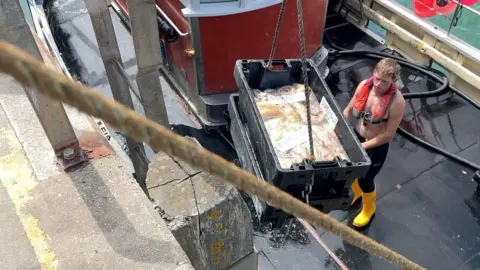
Dr Stewart is leading a new study funded by Defra, Plymouth City Council and Devon County Council to understand the phenomenon.
“We’ll know more in six months but it’s clear that climate change is reshaping our coastal ecosystems in real time,” he said.
For now, Mr Steer is cautiously adapting, testing new pot designs aimed at catching octopus with an eye on history which has shown that blooms like this have lasted a few years and then vanished, leaving shellfish stocks depleted for years afterwards.
“I’ve been calling myself an octopus fisherman for the last six months,” he said.
“It’s been good to us so far this year and I hope we can keep going.
“But if they disappear, I think we’re in for some very tough times.”
